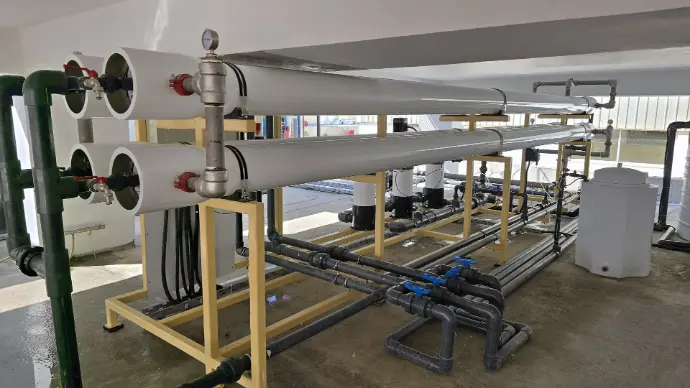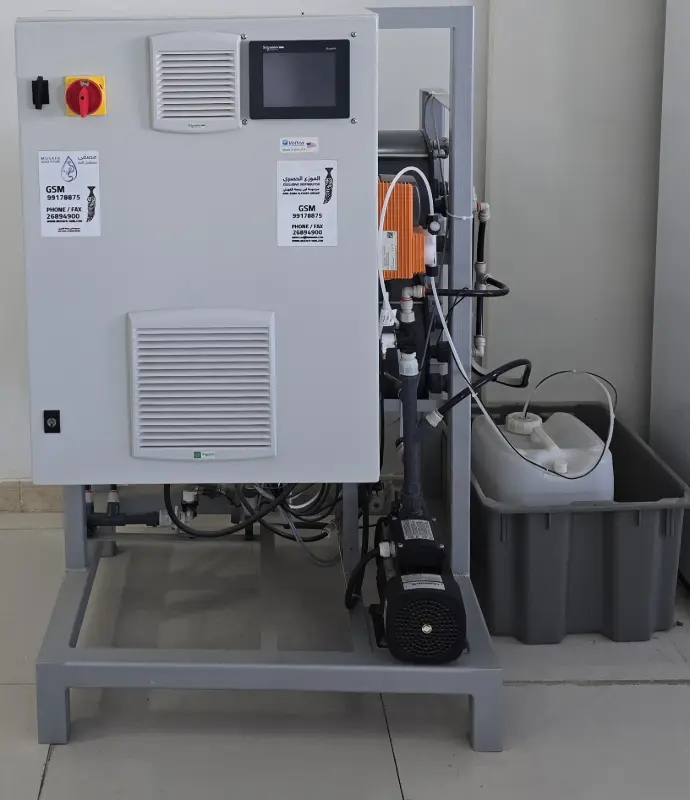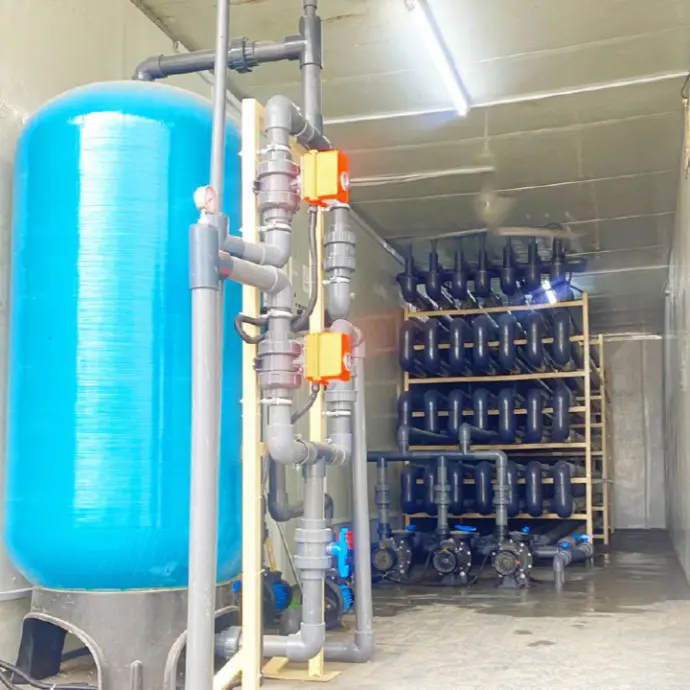water desalination plant
Desalination is the process of turning salty or polluted water into clean water for drinking and use. One common method is Reverse Osmosis (RO), which uses a special . filter to remove dirt and salt from the water.
Reverse osmosis (RO) water desalination plant
This technology used to get rid of salts and harmful substances, whether it is an underground water source or from the sea. RO plants are designed and installed to fit with the environmental conditions and the purpose of use.
Some features of these desalination plants
- Designed as customer need
- Life span is (20 years)
- We provide Maintenance services and spare parts
- High quality desalination of groundwater and sea water
- We designed and installed more than 300 stations
- The presence of a fleet of technicians and engineers.
Our Services
- Design and installation of desalination plants
- Maintenance of desalination plants
- Provide Spare parts
- Maintenance and repair pumps
- Provide of chemicals
- Provide and chemical washing of reverse osmosis membranes
- Rehabilitation of the station and raising the productivity of the stations
- Provide of annual maintenance contracts.

Capacitive Deionization CapDI technology
- Dutch technology and American industry work to desalinate brackish water. It has the advantage of adjusting and stabilizing the salts to achieve the desired water quality by the consumer. In addition to a set of features:
• Extraction of usable water to a rate of up to 95% - Low electricity consumption
- Low operating cost
- Low maintenance cost compared to other technologies
- The package contains a system of remote monitoring and dynamic control
- Do not use chemicals in the separation of salts
- Automatic cleaning
- Environmentally friendly units

- Water Collection: The desalination process begins by drawing water from sources like saline groundwater wells. Advanced systems ensure a sufficient water flow to the plant.
- Initial Filtration: Before entering the desalination process, water passes through filters to remove large impurities, like clay and sand, to ensure plant efficiency.
- Pre-treatment (Initial Purification)
- Adding Chemicals: Chemicals like chlorine disinfect the water, eliminating bacteria and fine particles to prevent scale formation in the systems.
- Advanced Filtration: Water passes through fine filters to remove smaller contaminants.
- Desalination Process Using Reverse Osmosis (RO)
- Reverse Osmosis (RO): The most widely used technology in desalination, RO applies pressure to saline water, pushing it through membranes that separate salts from water. This technology is ideal for providing drinking water to buildings and farms.
- Salt and Impurity Removal: Specialized membranes allow only fresh water to pass, while salts and contaminants are rejected, producing high-quality, fresh water.
- Final Treatment and Water Distribution
- Adjusting the Treated Water: After RO, minerals like calcium and magnesium may be added to improve taste and ensure health benefits.
- Distributing the Fresh Water: The treated water is delivered to residential buildings, farms, and factories through advanced distribution systems.
- Uses of Desalination Plants
- For Residential Buildings: Provides clean, safe water for drinking, cooking, and cleaning, ensuring residents' comfort and well-being.
- For Farms: The water can be used for irrigating farmland, boosting agricultural production even in arid regions.
- For Industries: Supplies clean water for industrial uses, enhancing production efficiency.
- Advantages of Desalination Plants
- Sustainable Solution: Desalination provides a reliable source of fresh water.
- Water Supply for Remote Areas: Desalination plants help supply water to regions lacking natural water sources.
- Water for Agricultural Companies: Agricultural businesses relying on desalinated water find these plants effective for increasing crop yield.
- Technologies Used in Desalination Plants
- Reverse Osmosis (RO): The most popular technology due to its efficiency and cost-effectiveness.
- Thermal Distillation: In some plants, thermal distillation is used to separate water from salts, especially useful in high-temperature areas.
Musafa, Abn Juma AL Fahdi Group for Water Solutions offers comprehensive solutions for desalination and installation of desalination plants for residential buildings, farms, and factories. We use the latest technologies to deliver clean, safe water. Contact us today for the best solutions to meet your water needs.



